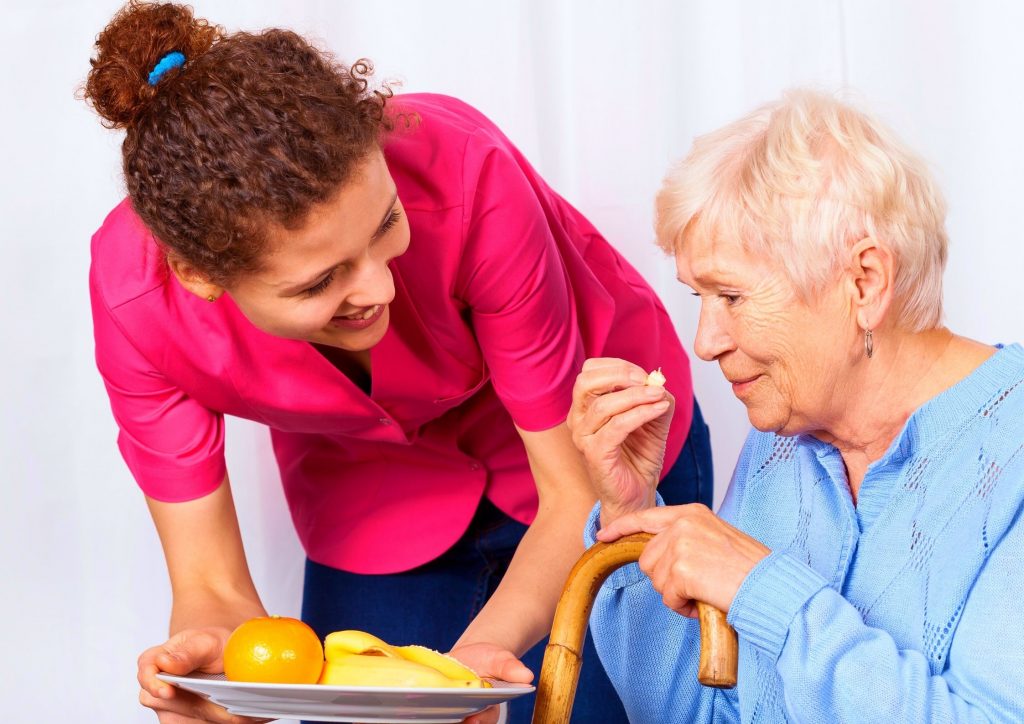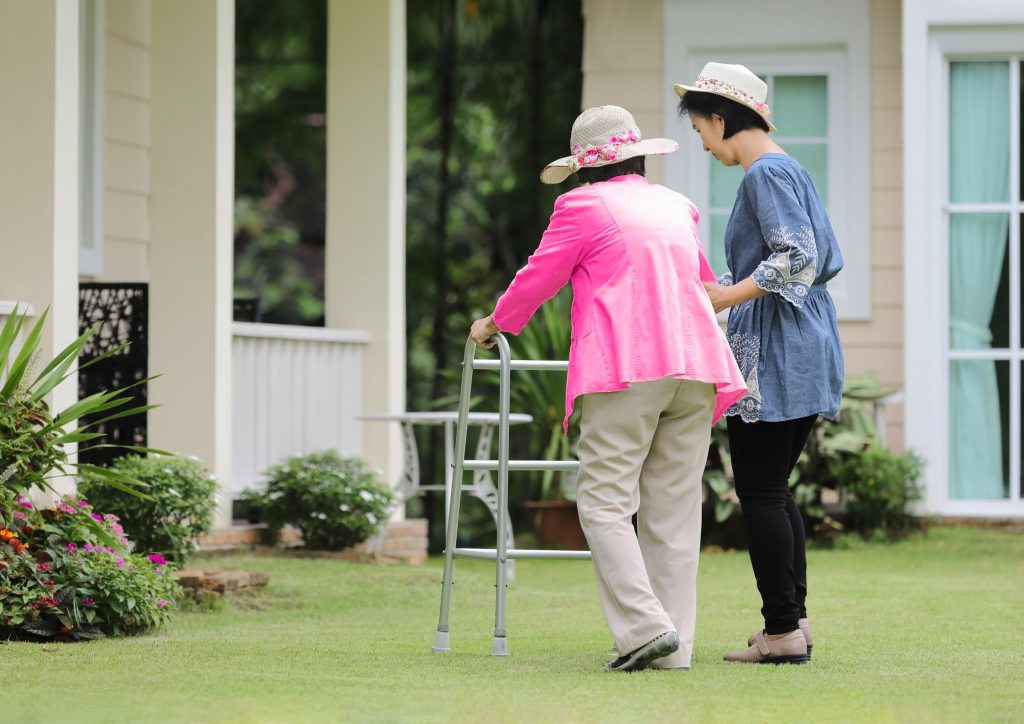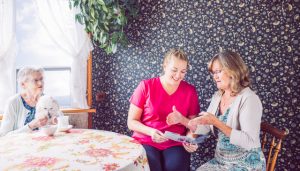5 Tips to Prevent Carer Burnout
“There are only four kinds of people in the world. Those who have been caregivers. Those who are currently caregivers. Those who will be caregivers, and those who will need a caregiver.”
– Rosalyn Carter
When we think of volunteers we think of people giving their time to raise funds for a foundation or cause they care deeply about. We, rightly, celebrate them each year and thank them for their contributions to the issues we hold dear.
It’s easy to overlook the silent group of volunteers who care for older parents or relatives. According to ProBono Australia many daughters, sons and family carers are volunteering their time every day to provide care for a loved one at home who would otherwise move into residential care without them.
The role of a carer is one that, to many, seems like a natural progression in the relationship between parent and child, especially as it can be hard to watch our parents struggle with age or health-related challenges. So many of us want to return the favour of care that our parents provided when we were young.

The Value of Family Carers
Carers Australia estimates there are almost three million unpaid carers in Australia and most primary carers are family members. The value of this unpaid workforce was estimated by Carers Australia in 2015 to be worth around $60.3 billion – over $1 billion per week. Yet the weekly average income of primary carers aged 15 – 64 was 42% lower than that of non-carers.
More than two-thirds of those caring for family members are female and 55% of primary carers provide care for at least 20 hours a week. Most importantly, a study by Deakin University suggests that, by 2025, family members will be providing much of the primary care for their ageing parents as the Government struggles to meet the demands of a fast-growing population.
When grown children start providing care for Mum and Dad, basic caregiving responsibilities can quickly turn into hours a day of providing care. Work, kids, spouse, and physical and mental health can start to suffer as a result – and that’s the last thing you want to happen as a family caregiver. While it can be fulfilling and comforting knowing you can take care of your ageing parents, it can be stressful as well.
Short weekly visits quickly turn into hours a day providing care. Globally, research shows the deep sense of obligation felt by family members and the extraordinary lengths they go to in order to care for their parents. Yet research also indicates that this sense of obligation runs the risk of resulting in carer fatigue with unpaid carers twice as likely to experience stress and/or burnout.
Our own Cathy Thorpe, CEO of Nurse Next Door North America, speaks of her own experience when considering the care her mother needed:
What is Caregiver Burnout?
Caregiver burnout is very common and normally occurs when a primary carer feels overwhelmed by the stress of caring for a loved one. Physical, emotional and mental exhaustion are common, and the carer may feel isolated, unappreciated and unsupported.
Caregiver burnout can be caused by a number of factors including
- Prolonged stress and distress
- Managing multiple roles
- Experiencing a lack of support
- Neglecting personal health and wellbeing
- Greif from watching a loved one decline
- Having a lack of privacy
- and more…
So what are the five things you can do to assist you if you’re taken on the role of carer for your ageing parents?
1. Recognise the symptoms that you may be overdoing it
Many people tend to bottle things up when they feel overwhelmed. It’s perfectly normal but isn’t very healthy. Stress can build and negatively affect us physically and mentally.
If you’re a primary caregiver experiencing any of these signs or symptoms, you might be burning out. It’s vital that you take a moment to focus on your own health to realise some of these symptoms which can include:
Emotional Health Symptoms
- Depression
- Anxiety
- Worry & Stress
- Irritability
Physical Health Symptoms
- Aches and Pains
- Frequent headaches
- Insomnia and sleeping
- Use of illicit substances to relieve symptoms
General Health Symptoms
- Lack of Motivation
- Inability to focus
- Neglecting personal health
- Use of illicit substances to relieve symptoms

2. Let Others Know How You’re Doing
Build a support group around yourself. Whether that means you talk to your partner, adult children or someone you trust or decide to speak about it anonymously, try to be open about how you’re feeling, and be honest with yourself if you’re struggling. If you feel like your family or friends may not be suitable, you can always reach out to a mental health professional to honestly express your thoughts and feelings in a space without judgment.
Research indicates that the role of the carer is more likely to fall to the eldest daughter, however, men and women alike can find themselves the primary carer and it is often men who struggle as they find it more difficult to let others know if they’re not coping. Referred to as the “sandwich generation” today’s primary carer is often still working full time and caring for their own children.
It’s vital to communicate if you are feeling overwhelmed with the added stress of caring for a parent.
3. Involve Your Parents In The Process
Talk to your parents. Don’t forget that may be scared and overwhelmed at the thought of needing care, and quite possibly insisting that they don’t need any help. It will be more difficult to provide care if your parents are hiding their struggles from you or are angry because they fear you will take away their independence.
Open conversations that are honest and respectful will go a long way to ensuring you and your parents maintain the best relationship moving forward.

4. Plan To Share The Role
Planning for aged care plays a critical role in ensuring you have considered not only the needs of your parents but your own ability to provide the care required. If you’re lucky enough to have siblings with whom you can share the role, be sure to involve them and consider how each other’s strengths, skills, interests and availability can be best utilised to provide the appropriate care for your parents.
Having a degree of flexibility is the key to successfully navigating who provides what care and when they do it. Remember, the needs of your parents will change over time so it is reasonable to expect that the role of each sibling as a carer will also change.
5. Find Out What Help Is Available To You
Talk to home care service providers to know what professional help is available, should you not be able to provide all care requirements yourself. It may be that you simply need some short-term respite care to take a break, or perhaps your Mum or Dad requires care from a qualified professional. It will be important for you to be able to identify the types of services that your parent needs and discuss these needs with your parents, siblings and care providers.
At the end of the day, it is important not to forget yourself in the caregiving equation. Look for ways to set aside some personal time and maintain a focus on your health taking particular care of your diet and exercise. If you’re not healthy, both physically and emotionally, it will be hard for you to look after someone else.
Give yourself permission to rest and to do things that you enjoy on a daily basis. Organisations like Nurse Next Door provide respite care services for older Australians so they can remain at home for as long as they like but they can also provide respite care for family caregivers who need a few weeks or months to catch up on their own lives. Seeking help doesn’t mean you aren’t a great caregiver yourself and you will most likely be a better caregiver for it.

At Nurse Next Door, we are passionate about Making Lives Better.
If your are looking at Caregiving as a Career™ click here to learn more and see what opporunitites are available in your local area.
If you require care in your own home, on your own terms, contact us 24/7 on 1300 600 247 to discuss how Nurse Next Door can help you keep doing what you love.
